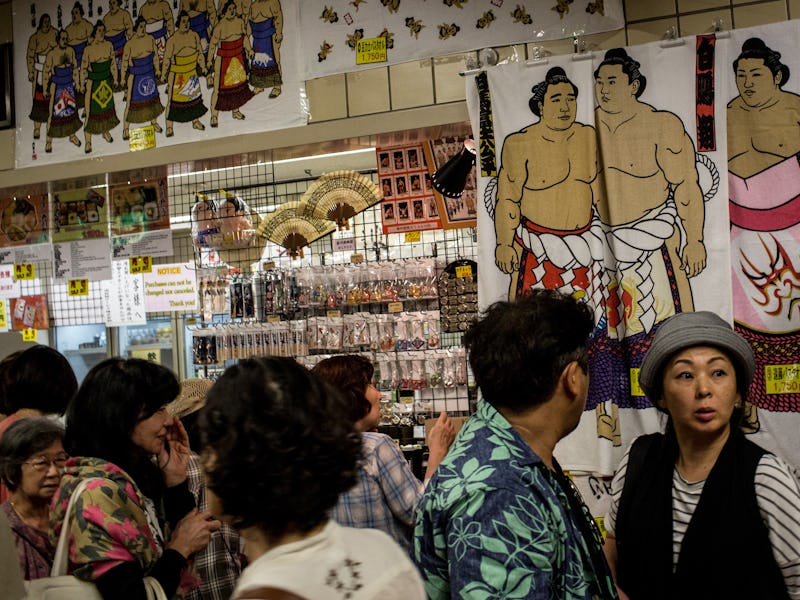Japan Records First-Ever Population Decrease Over Five-Year Period
What's the opposite of a baby boom?

Japan’s population shrank by almost million people between 2010 and 2015, according to results from the most recent national census. The decrease is poised to continue as Japan’s population ages, and the country’s birth rate remains a paltry 1.4 children per women.
The national population of Japan decreased by nearly a million people — from 128 million in 2010 to 127.1 million as of October, 2015 — a 0.7 percent drop. Tokyo was one of only eight prefectures in Japan that showed growth over the five-year period, while the remaining 39 recorded declines.
Fukushima, the site of the 2011 earthquake and tsunami that caused significant nuclear fallout from a power station, lost 115,000 people, more than any other prefecture. About 20,000 Japanese people died in damage from the initial earthquake and tsunami, and radiation exposure will likely cause the deaths of another 1,000 people, according to peer-reviewed studies. Internal migration and natural deaths account for the remainder of the prefecture’s population decrease.
While many countries would consider turning to immigrants to help buoy their numbers, Japan’s historic aversion to immigration means the burden of upping their numbers will fall squarely on the young.
An Aging Population
Prime Minister Shinzo Abe has already made increasing the national birth rate a priority of his administration, hoping to improve childcare and tax incentives to ease the burden of child-rearing. These benefits may help young couples with some childcare expenses, but the real obstacle facing the country and young people deciding to start a family will be whether they can afford to take care of babies as well as their elderly parents.
“By 2060 about 40 percent of [Japan’s] citizens will be sixty-five or older, and the general population will be one-third smaller than it is now,” the BBC reports.
Japan has long dominated the world's nations on average lifespan.
The huge elderly share of the population is the result of both the low birth rate as well as the nation’s long average lifespan. Japan has the longest lifespan in the world, a blessing for those living longer, but an acute challenge for a nation that will have to contend with significant healthcare costs, borne heavily by a generation that is already contending with a stagnating economy.
Japan’s struggles parallels that of many developed nations, particularly in Europe, where several countries have also turned to national efforts to help raise the birth rate.
Denmark’s “Do It For Mom” campaigns tries to shame young couples into giving their parents grandchildren, and Russia’s president Vladimir Putin has argued that “the three-child family should become the norm in Russia.”
At the same time, the world population grew from 6.9 billion to 7.35 billion — an increase of 1.3 percent annually. The United States expanded the national rolls at a rate of 0.8 percent per year over the same period, ballooning to 320 million citizens from 309 million.
Japan's birth rate has fallen consistently since 1960.
It may not seem important whether a country’s population is growing or shrinking, but economists have long linked a strong growth rate to a healthy economy.
There are also plenty of critics who point out that country’s competing over birth rates reflect a strange nationalistic obsession with size.
Either way, it’s also good to have some babies around.